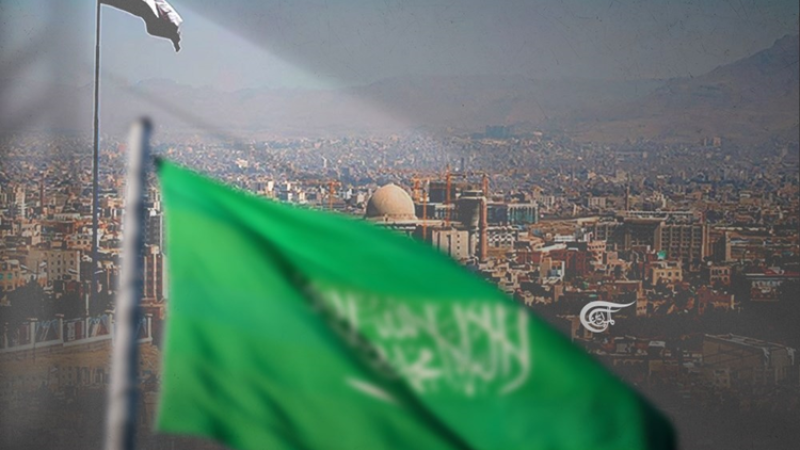Sana'a Warns of Riyadh’s Procrastination, Saudi Economy Would Be Targeted

Yemen: Between procrastinating Riyadh and Sanaa's options, the current stage in Yemen is oscillating without progress, let alone decisiveness, however, it is known that this situation will not continue indefinitely.
These visits come as a culmination of the role of US National Security Adviser Jake Sullivan, US Special Envoy to Yemen Tim Lenderking, and a number of US officials who have been remarkably frequented Riyadh and other capitals during the recent period.
To be realistic, Washington has succeeded to a large extent in aborting the understandings and rapprochement between Sanaa and Riyadh. While it was supposed to arrange for a new round of negotiations in which Sana’a would hear a positive Saudi response, the Saudi position in the Jeddah Declaration and in the speech of Muhammad bin Salman during the Jeddah summit was very negative, to prove the position once again that Saudi Arabia is subservient to Washington. It was confirmed that Saudi Arabia has not yet reached the stage of independence of political decision, but rather does not dare.
The matter applies to the Security Council, and to the United Nations, as the current session of May 17 regarding Yemen was also negative. The UN representative Hans Grandberg appeared in his bad and disappointing briefing as if he was another envoy of the Biden administration; He reads what he wrote after returning from Washington.
He crudely appeared to support projects and calls for secession in the southern governorates of Yemen, and was clearly biased towards the mercenary government, by denouncing the operations of protecting wealth and preventing foreign companies from continuing to loot oil and gas, unless their revenues are harnessed for the benefit of services and salaries.
In contrast to Hans Grandberg's talk about "a favorable environment for the next stages, a year and seven months after the truce officially ended," the "favorable stages" appeared in the form of obstacles in many issues, most notably the prisoners' negotiations that were scheduled for mid-May to release 1,400 prisoners from both sides. Also, there were no improvements in the movement of ships towards the port of Hodeidah and the flights towards Sana’a Airport. Flights were limited to Jordan as the only destination, with no commitment to operating commercial flights to other destinations agreed upon under the truce.
With these steps, a pessimism engulfed, and chances for peace vanished, in contrast to the optimism and positivity that previously accompanied the Saudi delegation's visit to Sana'a during the month of Ramadan last April.
This obstruction and stalemate was not surprising, but rather was an expected result of the intensive US visits and contacts to Riyadh since the Ramadan negotiations. All regional and international positions and approaches seemed to be a clear reflection of US political will. It was clear that Riyadh "has a narrow American margin towards Yemen," unlike What it has towards Iran and Syria, and before them China. Sayyed Abdulmalik Badr al-Din Al-Houthi mentioned this on the occasion of the anniversary of Sarkha.
In his speech, Sayyed Abdulmalik Al-Houthi sent strong and very clear messages, which represented the summary of the situation that Sana’a had been studying for nearly two weeks. Everyone believes that what comes after the speech is not the same as before it. Therefore we may be facing decisive choices if the engagement continues negatively without progress in humanitarian issues.
These positions came after many opportunities, and after a month and a half of waiting. Although the leadership did not trust the Saudi officials, it was giving space to the efforts of the Omani mediator. Sayyed Abdulmalik pointed out that “Yemen cannot go on indefinitely while others think they are buying time to carry out conspiracies” ,adding, “The Yemeni people, in light of procrastination, are concerned with confronting aggression and being ready for all possibilities at any time.”
There is a final opportunity as a challenge to the Saudi regime, which is for it to prove its "independence from Washington in Yemen and lift the siege on the Yemeni people." It is not possible to predict the outcome of matters, but these warnings must be taken seriously by Saudi Arabia, otherwise the Kingdom's economic ambitions and the 2030 plan will be in the wind by the Yemeni storm.
Riyadh may resort to mediation again, and we may witness visits during the coming period, but Sana’a, after its patience is about to run out, is planning to choose the appropriate time to strike the Saudi economic targets, unless Saudi Arabia rectifies its affairs away from political maneuvers, and away from the American line.
The eight 8 years of failure in the aggression in Yemen are enough for lessons, and the experiences are many. It has proven that the US abandons its allies, and does not provide them with security or protection.
-
06:57
Almasirah Correspondent in Sana’a: A U.S.-British aggression targeted 21st September Park in Ma’in District with an airstrike.
05:58
The General Conference of Arab Parties: Yemeni people will respond to the Zionist enemy's aggressions with strength and determination.
05:58
The General Conference of Arab Parties salute the stances, efforts, and sacrifices made by the Yemeni people, army, and leadership in supporting and standing by the Palestinian people.
05:57
The General Conference of Arab Parties reaffirm solidarity with the resilient Yemeni people, Ansarullah, and with the peoples of Lebanon and Syria.
05:57
The General Conference of Arab Parties: The violation of Yemen's sovereignty and territorial integrity, along with breaches in Lebanon and airstrikes on Syria, constitute a blatant infringement.





